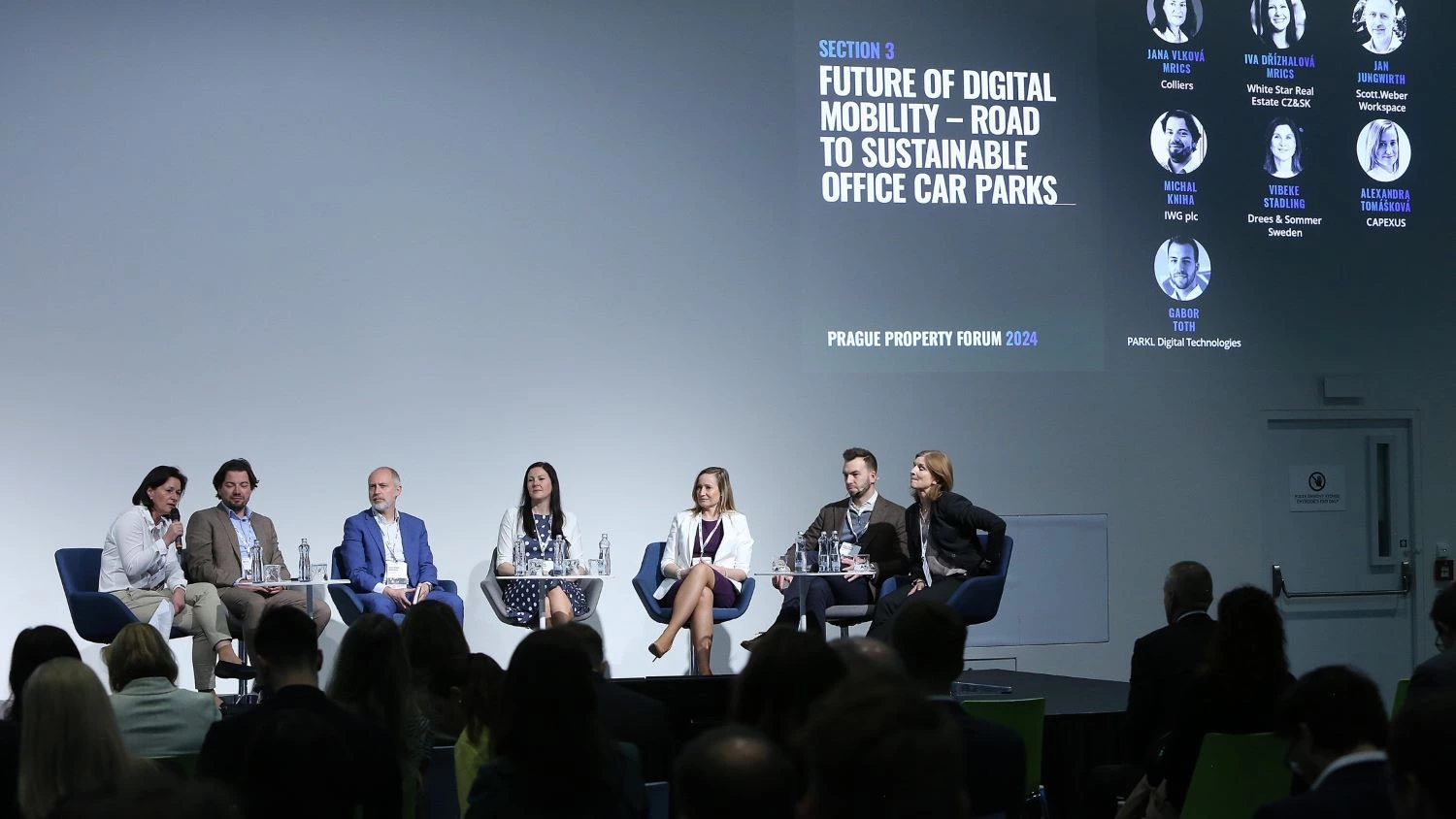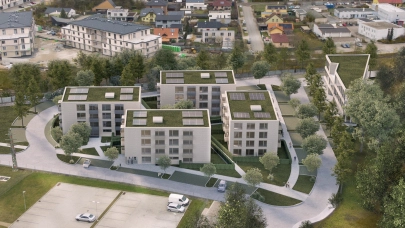
The changing dynamics of office utilisation and the need to balance efficiency and collaboration are hot topics not only for employers but for office providers as well. Resistance of employees returning to the office environment is still both a concern and a challenge. Office investments and a new age of working were the main discussion points at a dedicated panel of Prague Property Forum 2024.
Jana Vlková MRICS, Director, Head of Workplace Advisory and Office Agency at Colliers, started with the initial question, what the role of the office is nowadays? Jana also mentioned the different results of surveys held in CEE and overseas. Employees in CEE condition their comeback to the office premises by a specific comfortable environment. On the other side, their US counterparts revert to offices to be more efficient and to use collaborative opportunities. The fact is, as Jana mentioned, that the office utilisation is not increasing too much. „What can be done to improve it?“ she asked her panellists.
Vibeke Stadling, Senior Change Manager, Drees & Sommer Sweden, admitted: „We have to accept and realise that hybrid is here to stay and we have to reinvent the purpose for being in the office. That‘s a management question, of course.“
Alexandra Tomášková, Chief Commercial Officer, CAPEXUS, compared two different approaches to the office space: „In the past, employers took the number of people to one place saying that this now our office, our address. But after Covid, the situation changed. Now we see that the office has become a nest, it gained a different function than just being a location, the address. The design we are providing reflects both needs, to collaborate and to focus. That is something, you can do in the office, not at home with family around.“
Gabor Toth, Chief Operating Officer, PARKL Digital Technologies, counterarguments: „We are a software company. We have software developers who are more productive at home, believe it or not. We must talk about technology and digitalisation. Modern offices need to have a friendly user interface such as an office application with integrated solutions whatever it might include.“ Gabor continued: „From our data, we can see that on Fridays, 30% fewer employees are coming to the office. So we also have more parking spaces available. That is the question for landlords to figure out the flexible usage of premises.“
Jana agreed with this point and illustrated an example of a London corporate company which was downsizing the number of floors used on Friday as fewer people were coming to the office. „What is the future of offices then? What occupiers demand?“ Jana asked Iva Dřízhalová MRICS, Leasing Director, White Star Real Estate CZ&SK. „I would start with the rent perspective. When we look at developers, we see that construction costs went up quite a lot. That means that the rent has to go up for the project to be feasible. But will the tenants be able to pay for that? Of course, depending on the location,“ Iva replied and she continued: „As there was no office project started in the last approximately 18 months, the new supply will be quite low. That helps the vacancy rate, we are at around 7%, quite moderate compared to other countries within CEE. Flexible terms, that is the key point, what tenants want these days, like different brake options, prolonging, expanding or space reducing options, etc. Tenants want flexibility. That's a question up to the landlords.“ „With flexibility on one side, are the tenants willing to accept longer lease contracts to balance the developers‘ investments?“ Jana dived deeper into the topic. „Companies are then committing to less space, they do not know what happens in 2 years,“ explained Iva and added: „That is why they need more flexibility.“
Michal Kniha, Partnership Sales Manager for the Czech Republic and Slovakia, IWG plc, shared his experience: „We see that the game is changing. Based on our statistics we foresee that by 2030, 30% of all offices will be somehow flexible.“ Jan Jungwirth, Head of Finance and People, Scott.Weber Workspace, also confirmed a growing potential for flexible offices: „We are usually a decision-making delta in the projects for tenants. And there is a huge demand in Brno, even the competition is quite big.“
Getting back to the traditional offices, Vibeke explained: „If tenants communicate their needs clearly and involve employees, that contributes to greater success. A combination of focus work, informal and formal meeting rooms, seamless technology, occupancy tracking sensors and also common working platforms are all important, as we see.“ Alexandra Tomášková joined with her viewpoint: „Employees want to feel comfortable. Offices now look more like luxurious homes, which cost a lot of money.“
ESG aspect is also important for occupiers, reminded Jana Vlková and named a few related items: „Documenting materials origins, certifications, usage of recycled materials in the construction, all this is additional work for the landlord.“ Michal Kniha had a similar experience: „Last year we had a new demand in a location coming from an international investment bank. We had to react to 200 questions related to this, that is reality.“ Flexible offices in smaller cities face the challenge of how to cope with all these demands, said Jan Jungwirth and concluded: „Anyhow, we always find a good solution how to fit even in older buildings and provide our services.“



